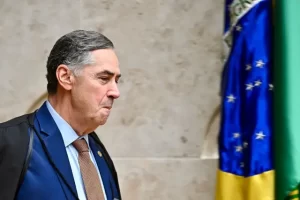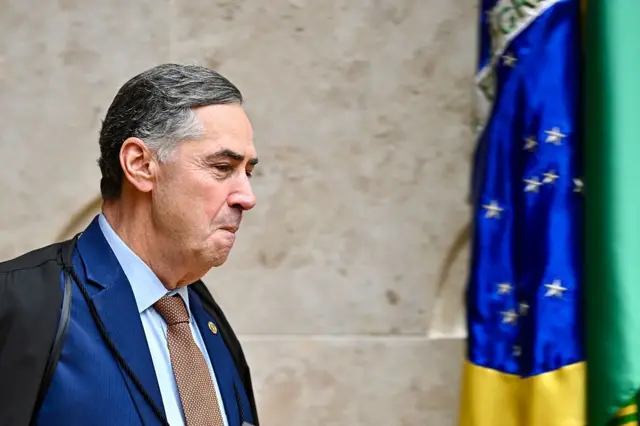The Fall of Barroso: A Tale of Judicial Overreach and International Accountability
By Hotspotnews
In a dramatic turn of events that underscores the fragility of unchecked judicial power, Brazilian Supreme Federal Court (STF) Minister Luís Roberto Barroso has announced his retirement, citing personal reasons. However, beneath the surface of this seemingly personal decision lies a narrative of international scrutiny and domestic controversy that conservative voices have long warned against.
Barroso’s tenure at the STF has been marked by a series of decisions that many conservatives view as an overreach of judicial authority, particularly in the realm of freedom of expression. His involvement in censoring hundreds of conservative profiles during elections has drawn sharp criticism, not just from within Brazil but also from international observers. This censorship, ostensibly aimed at maintaining electoral integrity, has been perceived by many as a blatant suppression of dissenting voices, a move that aligns uncomfortably with authoritarian tendencies rather than democratic principles.
The recent revelation that Barroso’s family might face U.S. sanctions under the Global Magnitsky Act adds a new dimension to this narrative. This U.S. legislation, designed to target human rights abusers and corrupt officials globally, now casts a long shadow over Barroso’s actions. The emotional collapse reportedly experienced by Barroso upon learning of these potential sanctions is not just a personal anecdote but a symbol of the consequences of judicial overreach when it collides with international norms of accountability.
Conservatives have long argued that the STF, under figures like Barroso, has strayed from its constitutional mandate, becoming a quasi-legislative body that shapes policy rather than interprets law. This perception is compounded by Barroso’s own statements, which have often positioned him as a guardian of international law and human rights, yet his actions tell a different story. The irony is palpable: a man who once advocated against sanctions on Ukraine now finds himself potentially ensnared by similar mechanisms due to allegations of grave violations.
The timing of Barroso’s retirement, juxtaposed with these international developments, raises questions about the true motivations behind his departure. Is it a strategic retreat to avoid further embarrassment, or a genuine desire to step away from the public eye? Whatever the case, it serves as a cautionary tale for those who believe that judicial power can operate without accountability. The global stage, with its increasing focus on human rights and freedom of expression, is no longer a distant arena but a direct influencer of domestic politics.
For conservatives, this episode is a vindication of their stance against judicial overreach and a reminder of the importance of aligning national policies with universal principles of freedom and justice. Barroso’s fall from grace, if indeed it is such, is not just about one man but about the broader struggle to maintain the balance of power and protect individual liberties in the face of institutional overreach. As Brazil moves forward, the legacy of Barroso’s tenure will be a critical point of reflection on the limits of judicial authority and the enduring value of conservative principles in safeguarding democracy.


